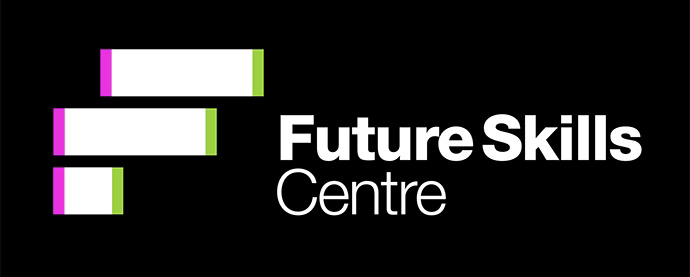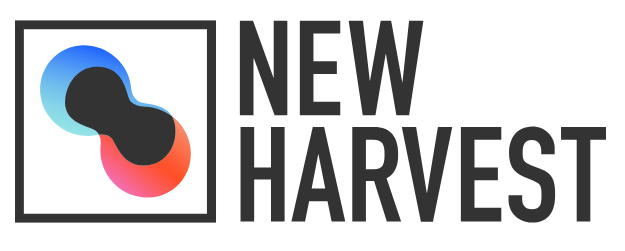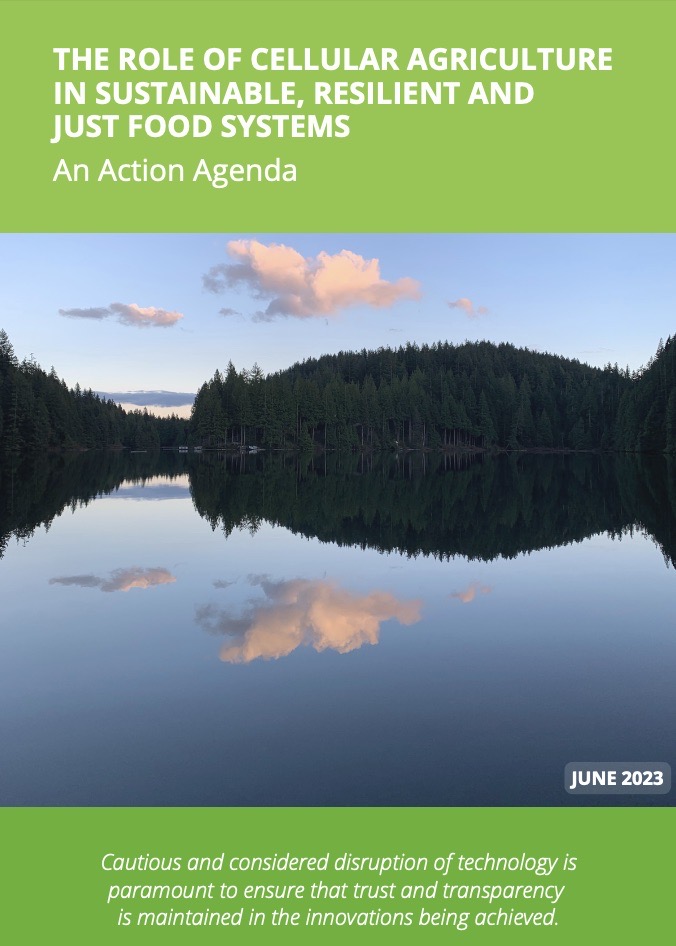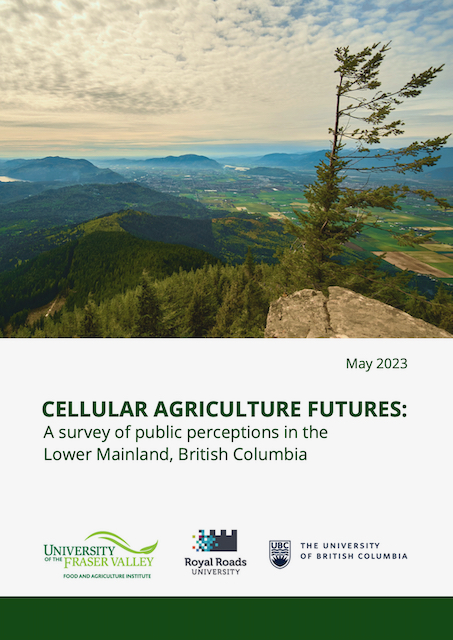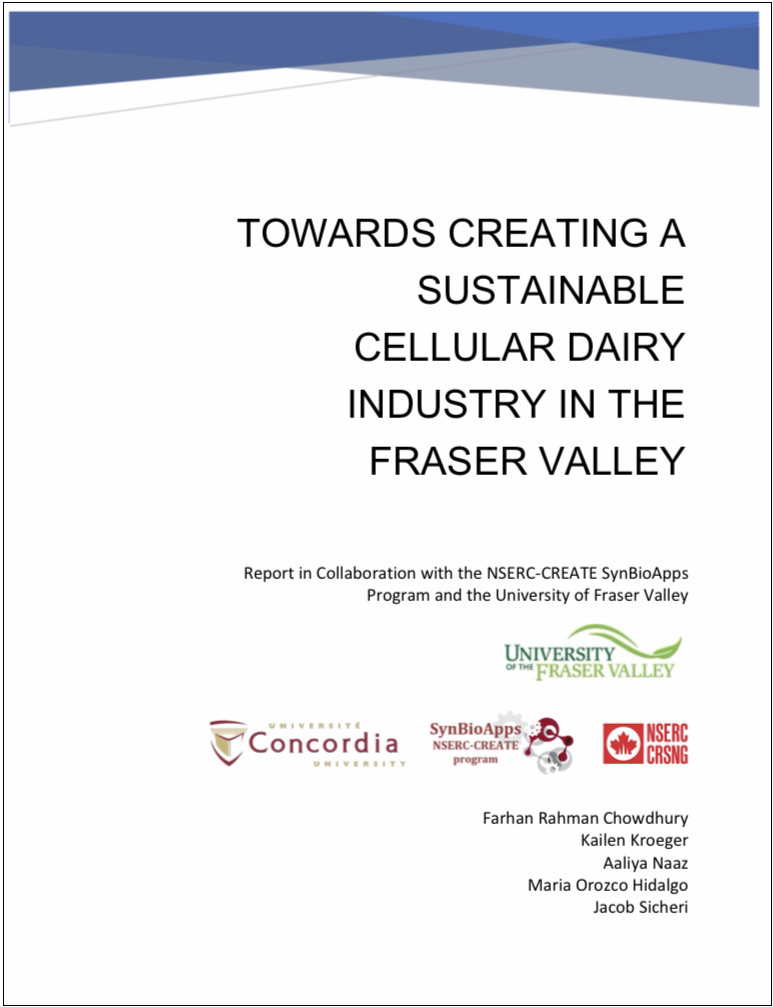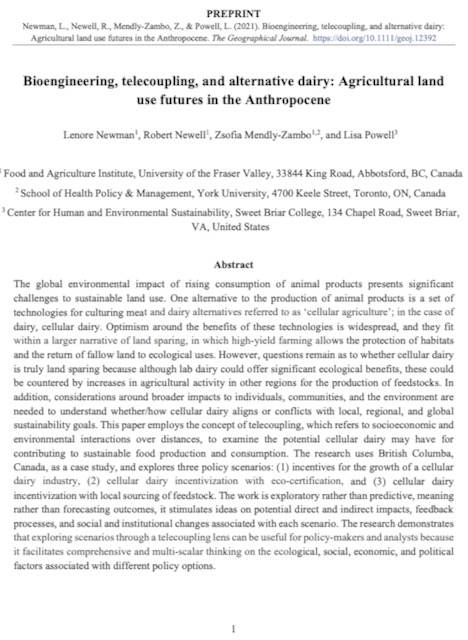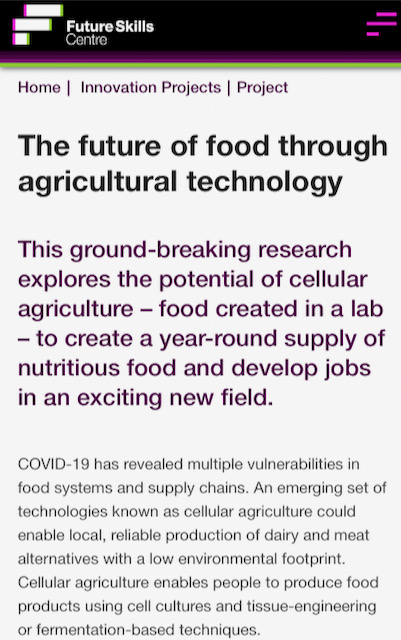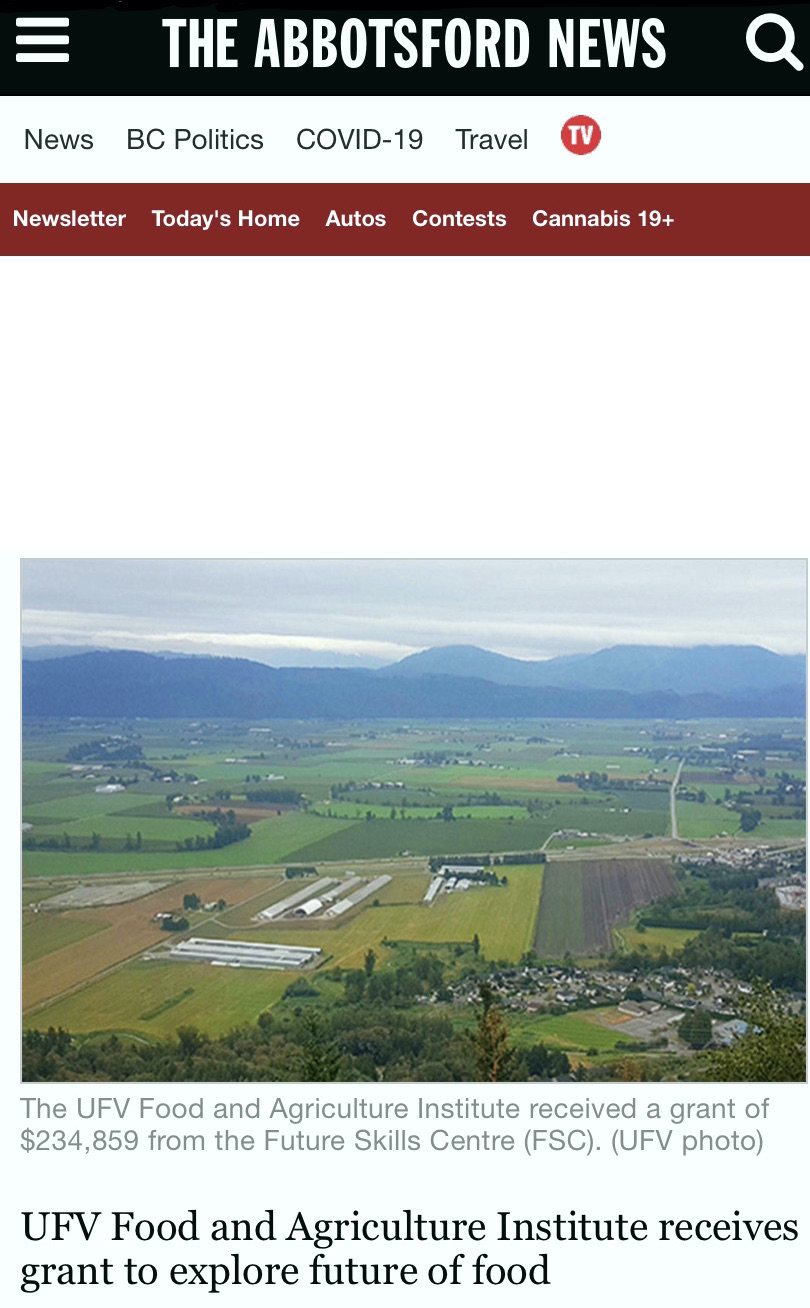Exploring the potential for increasing food security, local economic development, and environmental sustainability in Canada
Project Description
Employing a community-based research approach this project will explore the potential cellular agriculture (CA) has for enhancing and contributing to local food security, economic development, and sustainability in Canadian Communities.
CA refers to an emerging set of technologies for producing local, reliable dairy and meat alternatives with low environmental footprints, and the potential to operate in a variety of industrial, urban and rural spaces, and communities. This project will engage local and regional government, NGOs, industry, and community members to explore social, environmental, and economic opportunities and challenges around developing a plan for a local CA industry. This plan will provide a roadmap for developing a CA industry in a manner that aligns with local values and objectives, and if implemented could contribute to local food security and economic development.
This project will inform further details of developing a potential CA pilot project in the Fraser Valley. Research findings will be shared with Canadian communities outside of the Fraser Valley in the interest of increasing understanding of opportunities and challenges of developing a CA industry across Canada.
The Cellular Dairy Supply Chain
In some parts of the world you can already find, in stores, ice cream, milk, chocolate bars, cheese, and cream cheese made with animal-free dairy proteins. The dairy protein (e.g. whey) that is added into each recipe for something like this ice cream is molecularly identical to conventional sources of that protein, it just didn’t require an animal to produce it! It was produced using cellular agriculture techniques.
Cellular agriculture involves growing proteins or fats either through a cell culture (growing and propagating cells) or through fermentation (getting a microorganism to produce your compound of interest). In this diagram we focus on using fermentation processes to create dairy proteins of interest.
While the idea of making dairy products without animals is really exciting, it also raises lots of questions. How does this cellular dairy protein production process work? Where would this happen? What are the potential social, environmental, and economic costs associated with this industry?
The diagram below shows at a very basic level how animal-free dairy proteins are made and provides some tentative answers to these questions. Click the boxes to learn more about the cellular dairy protein production process.
Presentation
The following presentation was delivered at the 2022 Canadian Association for Food Studies Conference (virtual event).
Towards Creating a Sustainable Cellular Dairy Industry in the Fraser Valley
This report discusses waste streams that could potentially be used as feedstock for cellular dairy production in the Fraser Valley, focusing on agricultural waste as the feedstock and Aspergillus niger as the organism of choice for producing milk proteins from this feedstock. This report was prepared by students of the NSERC-CREATE SynBioApps program at Concordia University, and it was done in collaboration with the Food and Agriculture Institute at the University of the Fraser Valley.
Chowdhury, F. R., Kroeger, K., Naaz, A., Hidalgo, M. O., & Sicheri, J. (2022). Towards Sustainable Cellular Dairy Industry Fraser Valley. Concordia University, University of the Fraser Valley.
Bioengineering, telecoupling, and alternative dairy
This paper employs the concept of telecoupling, which refers to socioeconomic and environmental interactions over distances, to examine the potential cellular dairy (CD) may have for contributing to sustainable food production and consumption. The research uses British Columba, Canada, as a case study, and explores three policy scenarios.
Newman, L., Newell, R., Mendly-Zambo, Z., & Powell, L. (2021). Bioengineering, telecoupling, and alternative dairy: Agricultural land use futures in the Anthropocene. The Geographical Journal.
.jpeg)
.jpeg)
.jpeg)

